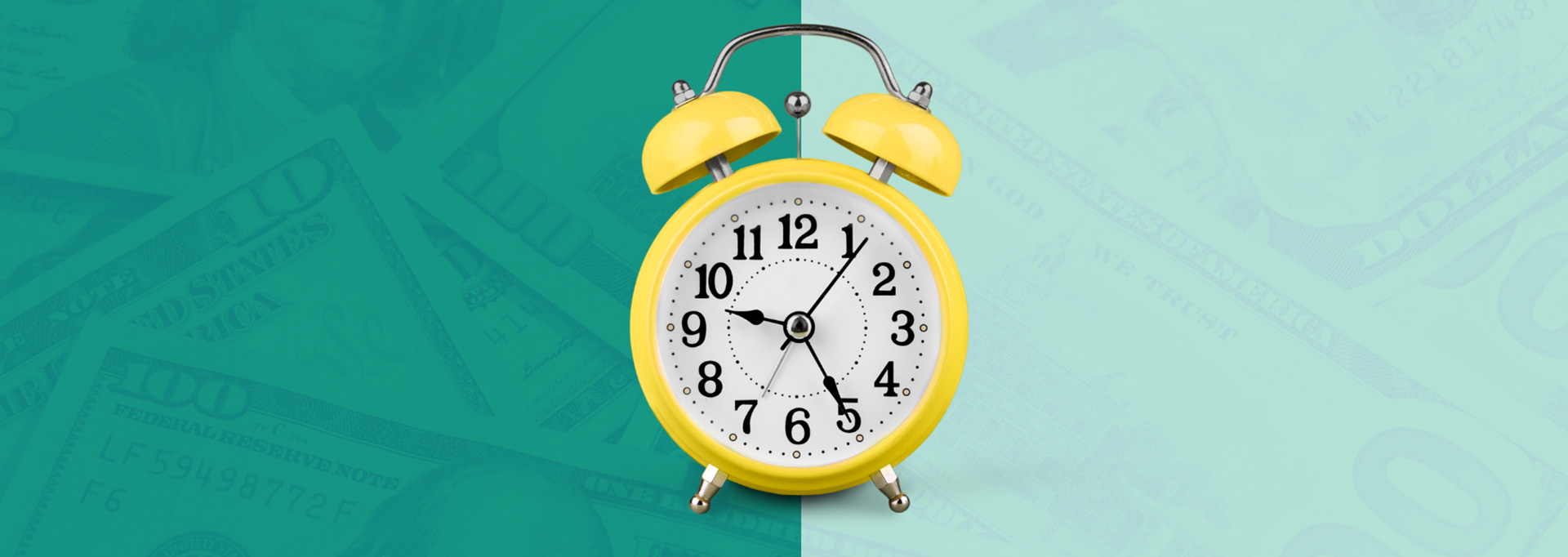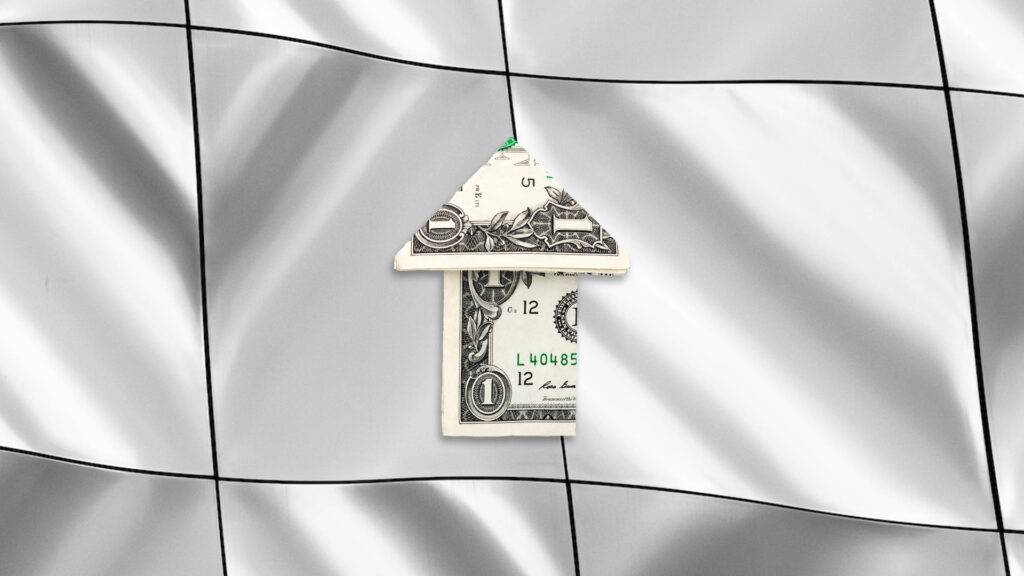Most products on this page are from partners who may compensate us. This may influence which products we write about and where and how they appear on the page. However, opinions expressed here are the author's alone, not those of any bank, credit card issuer, airline or hotel chain. This page may include information about American Express products currently unavailable on Slickdeals. American Express is not a partner of Slickdeals.
When you’re saving money toward certain types of short- to medium-term financial goals, a certificate of deposit (CD) could be a great place to store your cash. And this year, CDs have seen an incredible rise is value, with some CD interest rates quadrupling since the second half of 2022.
There are many benefits that CDs have to offer that you might miss out on if you keep your money in a regular savings or checking account. Below are five of the biggest benefits of saving your money with CDs in 2023.
Recommended CDs
CIT Bank Term Certificates of Deposit
- Our Rating 3.5/5 How our ratings work
- Minimum
Deposit Required$1,000 - 1 Year APY0.30%
Annual Percentage Yield is accurate as of March 31, 2023. Interest rates for CIT Bank's term CDs are variable and subject to change at any time without notice
- 3 Year APY0.40%
Annual Percentage Yield is accurate as of March 31, 2023. Interest rates for CIT Bank's term CDs are variable and subject to change at any time without notice
- 6-Month APY5.00%
Annual Percentage Yield is accurate as of March 31, 2023. Interest rates for CIT Bank's term CDs are variable and subject to change at any time without notice
Many banks that offer CDs require customers to commit to lengthy terms of several years or more in order to earn the highest interest rates available. However, with CIT Bank's term CDs, the opposite is true. To get the best rates at CIT, you'll need to open one of its shorter-term CDs, such as its 6-month CD that pays 5.00% APY. If you want an easy way to save more money without having to wait years, CIT Bank's term CDs are a solid option.
Overview
If you’re looking for a dependable way to earn interest on your money in the short term, CIT Bank’s certificates of deposits may be an excellent choice for you. However, those looking to open a long-term CD may be better off looking elsewhere.
Pros
- Strong rates for 13- and 18-month terms
- FDIC insured
Cons
- Rates for longer terms unimpressive
Synchrony Bank Certificates of Deposit
- Our Rating 5/5 How our ratings work
- Minimum
Deposit Required$0 - 1 Year APY5.10%
- 3 Year APY4.30%
- 9 Months APY5.00%
Synchrony Bank offers some of the most flexible CD options currently available. With terms ranging from three months to five years, as well as a Bump-Up CD and No-Penalty CD option, there's likely a certificate of deposit in Synchrony's roster that lines up with your needs. Additionally, none of Synchrony's CDs require a minimum opening balance, which is remarkably rare (many of the best CD rates require a minimum deposit of $1,000 or more). Across the board, Synchrony offers higher rates than most traditional banks, and some even outpace the best online banks' rates. All this makes Synchrony CDs an easy recommendation.
Overview
Synchrony Bank offers CD terms ranging from 3 months to 60 months, and across the board its rates are some of the highest currently available. While it only offers one No-Penalty CD and one Bump-Up CD, both are competitive in their respective areas. Another major perk of Synchrony CDs is the lack of a minimum opening deposit requirement; many CDs with comparable rates require you to commit to $1,000 or more, which make Synchrony’s CDs remarkably accessible by comparison.
Pros
- Strong interest rates
- No minimum deposit requirement
- Strong no-penalty and bump-up CD options
Cons
- Only offers terms of up to 60 months
1. Higher Interest Rates
Current CD interest rates are the highest that savers have seen in the past 15 years. And in many cases, CDs offer higher interest rates than other types of deposit accounts as well. The annual percentage yields (APYs) that banks offer on high-yield savings accounts and money market accounts often can’t keep up with the APYs available on CDs, especially in 2023.
Below are the average interest rates that banks are offering on various types of deposit accounts as of June 20, 2023 according to the Federal Deposit Insurance Corporation (FDIC).
Interest Rates by Account Type
| Account Type | Interest Rate |
|---|---|
|
Savings |
0.42% |
|
Interest Checking |
0.07% |
|
Money Market |
0.61% |
|
1-Month CD |
0.20% |
|
6-Month CD |
1.26% |
|
12-Month CD |
1.63% |
|
24-Month CD |
1.45% |
|
60-Month CD |
1.37% |
Keep in mind that many of the best CD rates far exceed the national average. So, if you are interested in opening a CD to earn more interest on your savings, it’s important to comparison shop and see what the best online banks and other financial institutions have to offer.
2. Guaranteed Returns
Another perk of saving money in CDs is the fact that the returns you earn are virtually guaranteed. If you deposit $10,000 into a 1-year CD with a 4.75% APY, you’ll have $10,486 when your CD matures (assuming daily compounding interest).
By comparison, you might be able to earn a higher return by investing your money in mutual funds or stocks. Long-term stock market investment has provided around 6%-7% returns when you subtract for the effects of inflation according to the Securities and Exchange Commission. Yet investing comes with a higher risk. While there’s a chance you could earn more on your investment, you could also lose more money as well.
3. Low Risk
If you open a CD with an FDIC-insured bank, you have protection in the event your financial institution fails. The FDIC protects depositors for up to $250,000 (per insured bank, per account ownership category). Online banks are just as safe as traditional banks as long as they are members of the FDIC.
You can receive a similar type of insurance for your deposits if you open a CD at a credit union (called a share certificate). Just make sure you do business with a credit union that’s a member of the National Credit Union Administration (NCUA) so your deposits are insured.
Remember that the insurance on your CDs and other types of accounts only goes up to $250,000 even if your bank offers FDIC insurance. So, it’s wise to consider opening multiple accounts at different financial institutions if you have deposits that exceed this amount.
4. Avoid Fees
Many banks charge fees to maintain different types of deposit accounts like checking accounts, savings accounts, and more. Yet it’s common for CDs to feature zero or low fees.
Monthly maintenance fees can eat into your potential earnings. So, CDs can be a great, fee-free way to grow your savings without having to waste any of your money on these expenses.
Quick Tip
You can also search for free checking accounts and savings accounts if you want to avoid fees on other types of bank accounts.
 Related Article
Related Article
5 Best Business Checking Accounts for Freelancers and Self-Employed Business Owners
5. Multiple Maturity Dates
When you open a CD, you agree to leave the cash you deposit in the account for a fixed period of time. In exchange, your financial institution pays you a fixed interest rate that’s typically higher than you’d receive on a traditional savings account or perhaps even a high-yield savings account. Yet, the interest rate you earn can vary based on how long you agree to leave your cash deposit in the bank, also known as the CD’s term.
In some cases, a bank may offer you a higher interest rate on a long-term CD vs. a short-term CD. But that’s not always true. It’s not unusual for 1-year CD rates to outperform CDs with lengthier terms at present.
The good news is that you have many options when it comes to choosing the CD term that works best for you. You can even consider building a CD ladder and spreading your cash among multiple CDs with different maturity dates. This approach can allow you to access your money at more frequent intervals in case interest rates increase or you want to use your cash for another purpose.
Potential Drawbacks of Saving with CDs
Before you open a CD you should also consider the possible downsides of using this type of account to grow your savings, including the following.
- CDs offer less flexibility. If you need to access your cash before the maturity date on your account, you could have to pay an early withdrawal penalty.
- Interest rates might not keep up with inflation. Although many banks are paying attractive APYs on CDs in 2023, the interest rates on these accounts are fixed and don’t always keep up with inflation.
Bottom Line
There’s no such thing as a perfect solution for everyone, and that includes CDs. Yet CDs can offer plenty of perks that could make them a great fit if you’re interested in a low-risk option to grow your short- and medium-term cash savings at a faster rate.












